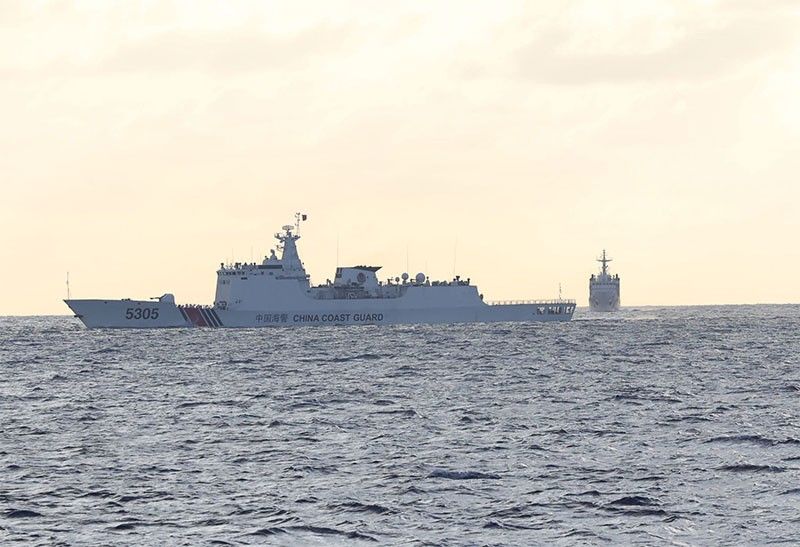Philippines, US vow closer coordination amid worsening China acts

MANILA, Philippines — With China becoming bolder in harassing Filipinos and committing illegal activities in Philippine territorial waters, top military officials of the Philippines and the United States held a teleconference last Monday to discuss the need for them to work more closely in addressing pressing security issues in the region.
The phone meeting between Armed Forces of the Philippines (AFP) chief Gen. Romeo Brawner Jr. and Gen. Charles Brown Jr., chairman of the Joint Chiefs of Staff of the US, came after a weekend of tension in the West Philippine Sea where Chinese coast guard and militia ships harassed and tried to drive away Philippine vessels on humanitarian missions in Ayungin Shoal and Bajo de Masinloc.
“The two agreed to maintain close coordination amidst worsening illegal activities of the China Coast Guard targeting rotation and re-provisioning missions and patrols of Philippine government vessels in the West Philippine Sea,” AFP public affairs office chief Col. Xerxes Trinidad said.
“They also discussed mutual strategic security interests and opportunities for increased military cooperation,” Trinidad added.
The AFP said the call reaffirms the military’s commitment to the Philippine-US alliance under the framework of the Mutual Defense Treaty as well as to upholding a rules-based international order in the Indo-Pacific Region.
Interviewed over GMA’s Unang Hirit, Brawner denounced China’s lying about the incidents over the weekend.
“They (Chinese) distorted the story. I was there myself on board the supply boat Unaizah Mae, and I personally witnessed their harassment,” Brawner said.
Defense Secretary Gilbert Teodoro, in an earlier interview, noted that despite China’s increasing aggression, the Philippines would continue to assert its rights.
“We are going to comply with the President’s instructions to us to be firm in enforcing international law, by our own selves and more importantly with partner and like-minded countries of the world,” he said.
The Joint Chiefs of Staff website said that phone conversation between the two top military officials was the first since Gen. Brown became the chairman.
“The leaders also discussed mutual strategic security interests and opportunities for increased military cooperation, including enhancing maritime cooperation, improving interoperability and information sharing, and increasing training and exercises,” the JCS said in its post.
No MDT trigger
Meanwhile, National Security Council assistant director-general Jonathan Malaya said China’s latest water cannon attack against Philippine vessels in the West Philippine Sea won’t trigger the Mutual Defense Treaty (MDT) between Manila and Washington.
“No, it cannot because it is not an armed attack. Under the MDT, it has to be an armed attack on a public vessel,” Malaya said in a chance interview last Monday at Malacañang.
“It is not an armed attack. it cannot be considered an act of war, according to our lawyers,” he added.
Signed by the Philippines and the US in 1951, the MDT seeks to enhance the defense capabilities of the two countries and allow them to jointly develop their capabilities to counter external armed attacks.
The Visiting Forces Agreement, which allows Filipino and American military forces to hold joint military drills in the Philippines, and the Enhanced Defense Cooperation Agreement which provides the US access to agreed Philippine locations, are offshoots of the treaty.
In their recent statements, US officials reiterated that an armed attack on Philippine armed forces, public vessels or aircraft in the Pacific, including in the South China Sea, would trigger Washington’s mutual defense commitments.
- Latest
- Trending





























